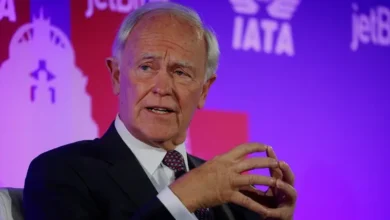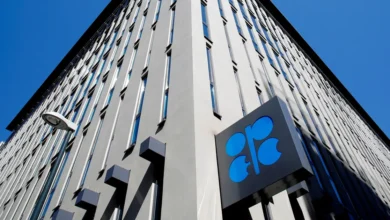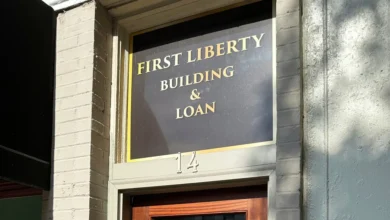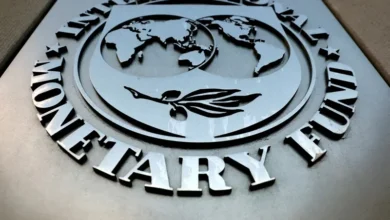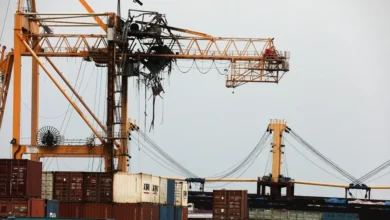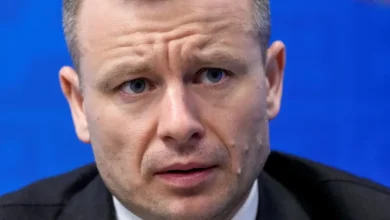Dubai crypto investors cautiously optimistic as confidence recovers from FTX fiasco
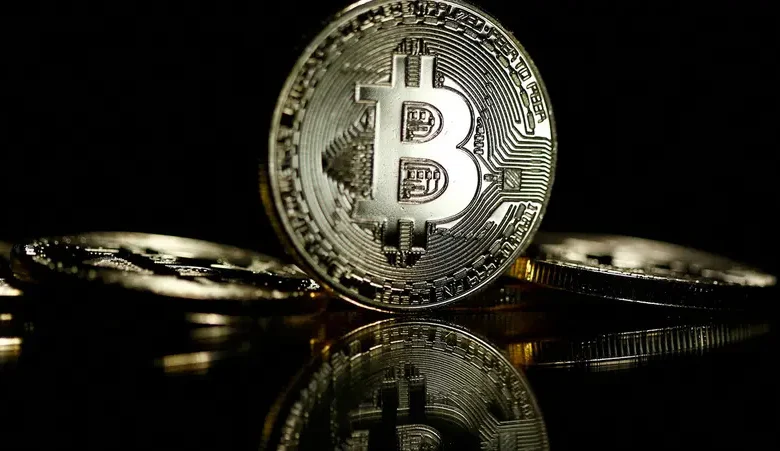
Cryptocurrency investors in Dubai are cautiously optimistic for the year ahead as their confidence, hit by the collapse of FTX, continues to recover and look ahead anew for better trading opportunities in 2023.
The collapse of the Sam Bankman-Fried’s FTX crypto exchange in November was the biggest in a string of big crypto-related failures in 2022 and not only shook the volatile crypto market, causing billions in losses and the market to fall below a $1 trillion valuation, but it also raised concerns about the reliability and transparency of crypto exchanges and the actions of their leaders.
This resulted in a massive blow to crypto investor confidence, including Dubai – a major crypto hub.
Some believe the repercussions of its collapse will be felt for years to come, as the crypto industry continues to navigate the challenges and uncertainty of this rapidly evolving field.
Investor sentiment
“The investor sentiment certainly changed,” Matthias Mende, co-founder of Dubai Blockchain Center and CEO and Founder of Bounz Market, said in an interview.
“A lot of investors in this sphere are not the most professional and a lot of them are looking for quick gains. Crypto is often a little bit like a casino for them. And since they’re not very experienced, and then even big entities like FTX, which are actually very trusted because they’ve been trusted by the likes of Sequoia and Andreessen Horowitz, all those big capital firms, they basically invested in someone who actually kind of destroyed the market. That’s what happened with the collapse of FTX.”
FTX’s collapse on November 2 sent shockwaves through the international crypto community, leaving many questioning what went wrong with the once-prominent platform. At the center of the collapse is the exchange’s founder and former CEO, Sam Bankman-Fried, whose actions and decisions are now under scrutiny.
It began when CoinDesk, a crypto news site, published a report revealing that Alameda Research, a quant trading firm run by Bankman-Fried, held a position valued at $5 billion in FTT, the native token of FTX. This revelation sparked concerns about the undisclosed leverage and solvency of Bankman-Fried’s companies and prompted rival exchange Binance to sell all of its FTT tokens.
The following days saw FTX announce a liquidity crisis and seek bailout funds from venture capitalists and Binance. On November 8, Binance announced it had reached a nonbinding agreement to acquire FTX’s non-US business, but by the next day, the deal fell through after Binance conducted due diligence. On November 11, Bankman-Fried stepped down as CEO and FTX filed for Chapter 11 bankruptcy protection.
The situation worsened, and Bahamian authorities froze the assets of FTX’s subsidiary there, while Bankman-Fried admitted the liquidity crisis of his non-US businesses and said Alameda Research would wind down. The next day, FTX reported an alleged hack, suspected to be up to $477 million, and moved its digital assets to cold storage for security reasons.
The Bahamian authorities then seized control of FTX’s assets held there on November 18, and on December 12, Bankman-Fried was arrested and later extradited to the US. He was released on a $250 million bond on December 22, and pleaded innocent to all criminal charges on January 3rd.
“The confidence of investors [in Dubai] is extremely low because even top institutions got hurt, heavily hurt and if something as genuine seeming as FTX can do that, then how can investors trust smaller projects?” Mende said.
Despite this, the FTX collapse also had some positive outcomes, said Mende, mainly that “crypto fans” are making more informed decisions on where they decide to invest their money by doing their due diligence to find out if a platform is legitimate and who its founders are.
“But now big companies go down like FTX, then nobody can actually trust anything so the sentiment is low, but also the investor confidence is recovering because they are digging deeper to look into projects in more detail,” Mende explained.
“People are getting educated, learning from previous mistakes and trying to prevent it, which is good, because this way, less bad actors and bad players actually have a chance to succeed in scamming others.”
“Dubai investor confidence is recovering slowly… Time always heals all wounds.”
‘Bomb that shook an already scarred landscape’
“The collapse of FTX late in 2022 was the bomb that shook an already scarred landscape,” said Doug Brooks, Senior Advisor at Xin Fin Foundation.
“Investor sentiment is a fundamental influence on cryptocurrency prices and this event, on the back of broad industry losses as the year progressed, pushed confidence to dangerously low levels. Investor confidence remains low.
“New investors, bullish after an enriching 2021 saw their portfolios shrink significantly and many now lack the confidence or the means to ride the dip by dollar-cost-averaging, while institutional investors suffered big losses and most ceased activities in the crypto market to cut their losses and regroup.”
The exchange’s collapse has exposed weaknesses in other crypto firms, said Brooks.
Throughout 2022, numerous redundancies we filed. He believes that there are more to come.
“Dubai, as a world-leading hub of excellence for digital technologies is one place where the same shockwaves have been felt but with somewhat less impact thanks to the strong resilience, fundamentals and sustainability of the Dubai economy. In spite of the downturn, venture capitalists have continued to be active in this space.”

It may take some time before the crypto market sentiment returns to “positive territory,” said Brooks, who also believes that Dubai is set to lead the way in the industry this year due to the UAE government’s proactive approach in “fast-tracking” technologies and developing a suitable legislative and regulatory framework.
“This has attracted top industry talent and well-led, fundamentally sound firms who see the FTX collapse as a bad apple falling from the tree and the ensuing rush to industry regulation as a welcome development that will enhance credibility in cryptocurrencies and accelerate the return of investor confidence.”
Will the ‘crypto winter’ come to an end?
Metaverse builder firm LandVault’s CEO Sam Huber told Al Arabiya English that while the collapse of FTX was an important event for the industry, the crypto market had already plunged into a bear market – when asset prices drop by at least 20 percent and remain lower for a protracted time period – in 2021.
“Until now, we don’t see many signs that the crypto winter will come to an end,” Huber said.
A crypto winter, a period of prolonged bear market in the crypto sector, is characterized by a significant drop in the value of currencies, decrease in trading volume and overall market activity. This usually happens due to a variety of factors, some of which include regulatory changes, security breaches, or a general lack of investor confidence.
“Crypto has proven to be more or less correlated to many traditional investments. Years ago, it was hoped that digital assets would act more as a hedge when the stock market fell. But that hasn’t been the case. Instead, crypto is treated much like any other “high-risk” investment and tends to be one of the first assets to be shed when the market worsens,” Brooks explained.
Due to Dubai’s favorable regulatory environment for crypto investors, several blockchain-based startups and established firms have based themselves in the city.
“Investors in Dubai, like in any other market, are also cautious and tend to look for opportunities with good potential for returns. This has led to a demand for more professional and regulated investment options for digital currencies, such as hedge funds, regulated exchanges and other investment vehicles,” said Brooks.
“Overall, the sentiment among crypto investors in Dubai is positive and optimistic, with a recognition that the technology has the potential to bring significant benefits to the economy and society. However, they are also aware of the risks and volatility that come with investing in any emerging technology, and are taking a cautious approach to making investments,” the LandVault CEO said, adding that the recent launch of a digital version of the local currency, emCash, can also be seen as a “positive sign” for the emirate’s crypto market.
“It is important to note that the crypto market is always in a state of flux and changes happen frequently. Hence, it is always wise to conduct thorough research and seek professional advice before making any investments.”
Investing in the metaverse
Although market conditions are not ideal, Brooks believes that this presents a lucrative opportunity: metaverse-related investments.
“Besides the bear market, the buzz around the metaverse concept has seen numerous banks, corporations, brands, and celebrities starting to grapple with this new virtual frontier,” he said.
“For investments in the metaverse, the bear market means that the cost of purchasing digital land is down. The upside potential is high for those to start creating value through building now.
“There may never be a better time to get involved in creating a metaverse project. Despite the state of the market, brands from Nike and Gap to Meta, and even banks like HSBC and JPMorgan are starting to build a presence in the metaverse.”


